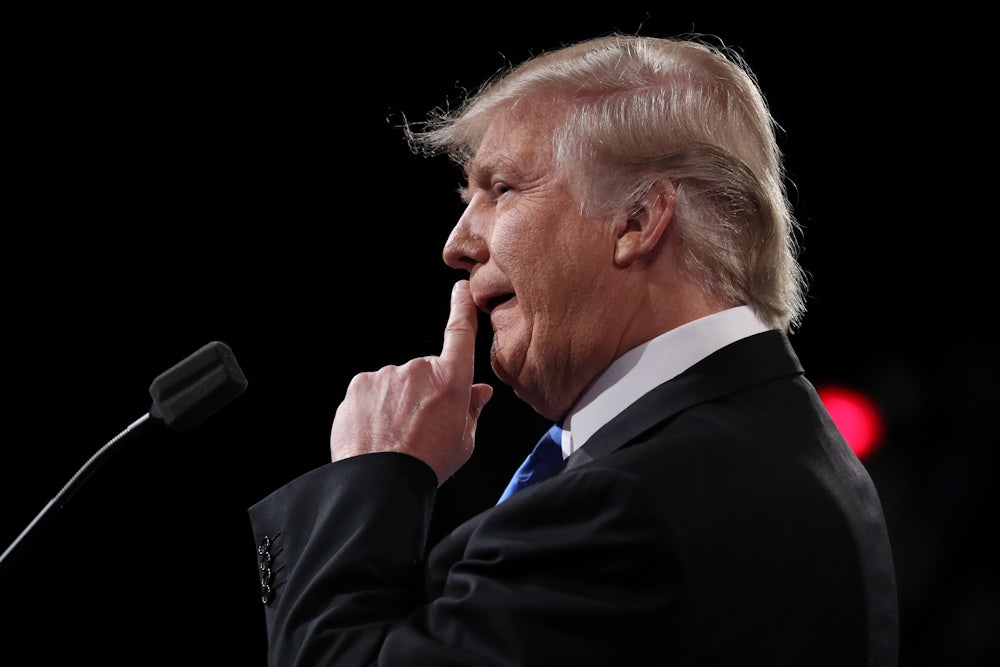Conservative opposition to the Affordable Care Act degenerated into fantastically unprincipled nonsense almost as soon as it became a Republican organizing principle, but it worked in that capacity for so long because there was something real at the heart of it.
Republicans don’t have a single, defensible vision for the future of American health care policy, but they know it shouldn’t be a future in which the government provides insurance to as many people as it does today. That commitment, though politically troublesome and inhumane, is deeply held, which makes it a safe bet that the Obamacare’s weeklong reprieve from legislative assault won’t last forever.
But if Republicans were able to step outside of themselves for a moment, they’d see an opportunity in their recent defeat and seize it now, rather than drift along in the natural currents of health care politics until they arrive at the same place naturally.
A condensed version of the health care debate in America looks something like this:
During the campaign, Republicans promised to repeal and replace Obamacare with “something terrific” while Democrats fought among themselves (starting in the primary and continuing through the general election) over whether to fix and improve Obamacare or begin work right away on switching it out for a single-payer system like Medicare for all.
Against this backdrop, Democrats lost the election.
By forcing Republicans to coalesce around a single health care plan, and putting Democrats in the position of defending the ACA’s health insurance expansion, the GOP’s unexpected consolidation of power reversed the political power of health care.
After six months, Democrats and nearly all factions of the American left were united in opposition to Trumpcare, and Republican unity had shattered.
Which brings us to today. The smart money says Republicans will continue attempting to undermine Obamacare, though perhaps in subtler ways. Repeal might be dead, but it’s hard to imagine that the law will receive adequate funding and administrative care.
This might quench President Donald Trump’s thirst for vengeance, but as a strategic matter the politics are extremely dumb, and not just because the public will blame the governing party for the problems with the health care system.
What the last six months, and indeed the last eight years, have demonstrated is that Republicans reap enormous political benefits when they are united against Democrats in the debate over health care and suffer terribly when they manage to unite Democrats against them. Until last week, they sought unity through uncompromising hatred of Obamacare. Going forward, their best bet would be to completely reverse themselves and become Obamacare’s most committed guardians.
This strategy has echoes in the early days of the health care reform fight of 2009. Conservatives have been committed foes of public insurance going back decades. By President Barack Obama’s first year in office, their posture toward Medicaid and Medicare had softened from treating the programs as fiendish socialist plots to treating them as hallowed but unsustainable commitments that should be offloaded on to states and private industry respectively.
But when Democrats used savings wrung from Medicare provider payments to help finance the ACA insurance expansion, Republicans discovered the immense political power of being tribunes for federal spending on single-payer health care.
This was, of course, wildly disingenuous and unprincipled, but their attacks on Democrats for cutting Medicare stuck, and probably contributed to the landslide election they won in 2010.
If Republicans continue to sabotage Obamacare, they will train liberal energy on to protecting it. But if Republicans were to become convincingly responsible stewards of the law—and thus end the sense that the law was under threat—Democrats would descend back into the kind of infighting over the future of health care that helped Trump become president in the first place.
This state of affairs is probably inevitable at some point anyhow. If Republicans continue to be hostile to the concept of a federal health care coverage guarantee, Democrats will regain power and rejoin the fight among themselves over how radically to change Obamacare. At that moment, Republicans will discover the value of supporting the status quo and encouraging Democrats not to rock the boat. The question is whether the Republicans can let go of their hatred of Obamacare long enough to skip the intervening steps and send Democrats into disarray right now.
